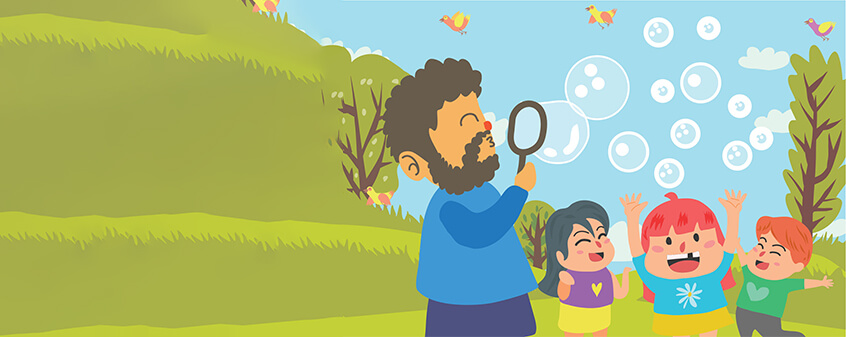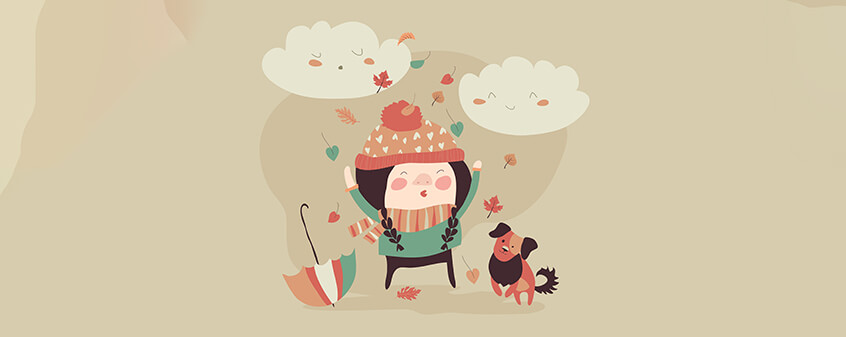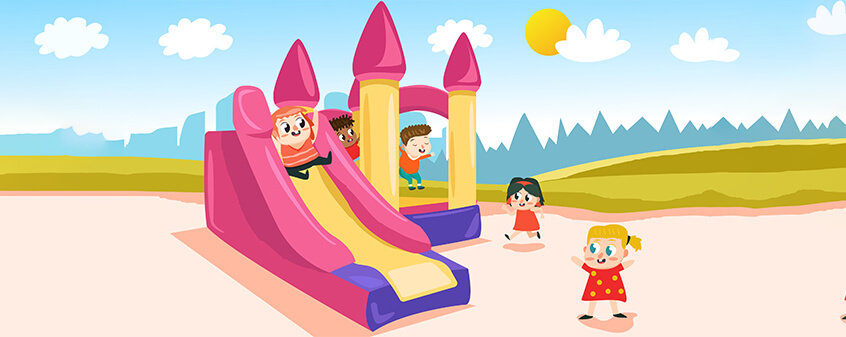Children and Festivals
In a world of increasing globalisation a child in India not only celebrates Diwali but also Halloween. A child in Australia not only celebrates Christmas but also experiences Diwali. Road signs in Western countries read ‘Diversion ahead due to Ganesh Chathurthi procession’. The great thing about this is that it promotes an understanding and hopefully a tolerance of other cultures, rituals, ceremonies and traditions. In a world where intolerance and religious disputes are in abundance teaching children about others and the festival of others can help bridge building towards a more peaceful world. This will only hold true however if we bring the depth of understanding to the rituals that festivals are marked by.
In an increasingly commercialised world festivals have become more about gifting, buying chocolates, buying new clothes and bursting crackers. Many companies benefit from this and sales in stores spike during festive times. Allowing children to celebrate a ritual without an understanding of its significance will lead to increasing ignorance. Most rituals are handed down generation to generation with no understanding. The rituals that exist in each of the festivals then become a tangible way of experiencing an abstract concept. The intention of any festival or ceremony is much more important than the rituals that are experienced. A school that my son attended sent me a note to send 50 apples as my son’s contribution to the class’s Halloween party. The concept, history and origin of Halloween is a difficult and abstract concept to teach an 8 year old about Halloween for the large part is fun for kids and can allow kids to engage in art and go out into the neighbourhood community ‘Trick or treating’. The ritual that went against my core values as a parent and the values I wanted to imbibe in my son was the ‘bobbing of the apples’. How does one allow the bruising and waste of 50 apples in a city like Mumbai? That would amount to me teaching him that it is okay to play with food in a city where so many children don’t have enough food to eat.
It can be a great thing to celebrate festivals and important days that were not once a part of one’s culture and tradition. Days like Halloween, Mother’s day, Father’s Day, Women’s Day, Grandparent’s Day etc. However it is very essential that we understand the meaning of these festivals and days and not just fall in to the trap of commercialisation. Festivals actually are special days or periods, usually in memory of a spiritual event, with its own social activities, food, or ceremonies.
Now let us understand one thing in the 21st century we live in nuclear families, in small apartments and the concept of joint families have by and large gone, children meet their grandparents, relatives and cousins only on special occasions, if these special days are not celebrated they will not be able to build strong bonds with them.
The fact is that man is a social animal; however he has isolated himself as he is busy competing in this rat race and is running around in the quest to earn money and thereby life has become boring and mundane. Thereby Children do not relate to their relatives or cousins. This is the biggest reason why festivals have become even more important for children; it is the only time to bond with family and friends. As parents it is our responsibility that we research about these festivals and take the effort of explaining the meaning behind celebrating each one of them. It is not just about the rituals we follow, there surely is a history and strong reason behind celebrating each festival.…
For E.g. Diwali is celebrated as Ram returned to his kingdom with his wife and brother after winning over evil and killing Ravan. The essence of this festival is the victory of good over evil. This is the quality children need to imbibe. It is just as important for children to understand the celebration in the context of today. Talk to children about Diwali being about ‘light’. Talk to them about crackers. The fact that in most cases cheap child labour is used to manufacture the crackers at a great health risk to the children. Talk to children about noise, air and light pollution and the impact the crackers have to the environment. Let them know the environment includes animals, sick people and the air.
Teach children about the intent of the month of Ramadan. That it is not about fasting and depriving yourself of food and torturing yourself physically and then enjoying a feast every evening. The essence of fasting is to practice self control, self regulation, being thankful for your blessings and giving to the poor. However if this is not explained to the child he will grow up not knowing the true meaning and follow tradition blindly…
Why do we celebrate Christmas, it is not just the birth of Jesus that is celebrated, it is not just the time for merry making, there is more to the festival. Christmas is about the essence of love, it is about the spirit of giving and forgiving, it is about reflecting and thinking about the meaning of life.
In short festivals are important especially for children because they teach us about how to live in a community and celebrate and share each other’s happiness. It teaches us how to share with the less fortunate and be thankful for our blessings and all that we have, it helps make children more empathic towards others, and it makes us aware about history and the culture of different communities and more.
Along with parents even schools should take responsibility of sending out the right message and educating children about festivals through stories, plays and videos. Another good idea to educate children in schools is to make them research about different festivals and the teachers should take time and have a discussion around the festival to make sure children are imbibing the right things and not just following tradition blindly.
For E.g. Create a work sheet talking about Diwali and why it is celebrated, also mention why children should avoid buying fire crackers because the manufactures employ children for making them, talk about the hazards these children face and post that make your students list down the negative effects of fire crackers.
So to conclude in schools and at home, children should learn that spirituality is the soul of all religions.








